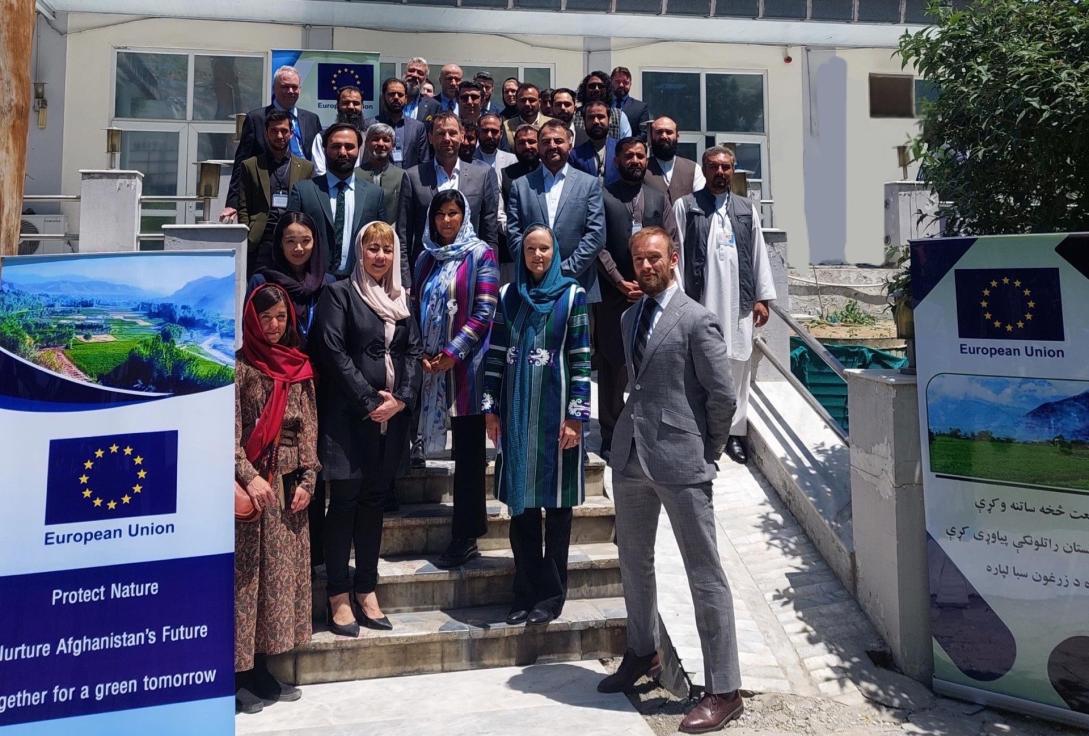The European Union Delegation hosts discussion on climate change in Afghanistan

Today, the EU Delegation to Afghanistan held a conference to discuss climate change and its effects for Afghanistan, chaired by Ms Raffaella Iodice, Chargée d'Affaires a.i. to Afghanistan and Ms Melinda Good, World Bank Country Director Afghanistan, in presence of the EU Special Envoy to Afghanistan Tomas Niklasson.
Afghan experts, practitioners and activists discussed the effects of climate change on urban and rural communities in Afghanistan, and elaborated on ways for communities to become more climate resilient. The conference also saw presentations from the UN Food and Agriculture Organization, the Agha Khan Foundation and the UN Development Programme.
At the conference, Raffaella Iodice, said: “Looking ahead, the consequences of climate change have the potential to unleash a level of destruction on Afghan society that is comparable to the devastation wrought by the decades of war. With several severe droughts over the last decade alone, the impact of climate change is already having a disastrous impact on the lives of the Afghan people. Therefore I feel there is an urgency for everybody to take these signs seriously and to take action.”
Tomas Niklasson, EU Special Envoy for Afghanistan, added: “Our discussion today is meant to re-start a conversation on climate change in Afghanistan. Together, we can make a difference in the lives of Afghan people and forge a more sustainable, resilient, and prosperous future for all”.
Agriculture forms the backbone of the Afghan economy and is highly sensitive to fluctuations in rainfall, water availability and climate change impacts. The last decade has seen a faster-than-average increase of temperatures in the country, leading to more frequent and intense droughts, heatwaves and flooding throughout the country. These meteorological events can have far-reaching social and economic repercussions, and they accentuate poverty and displacement that resulted from the last forty years of violence.
Background
As a global leader, the EU continues to lead on international efforts and addresses, in conjunction with partners, environmental challenges and promotes the implementation of ambitious climate, environment and energy policies across the world. Through bilateral efforts, we accompany partners to transition towards more sustainable development pathways. The Green Deal is an integral part of this EU’s strategy to implement the United Nation’s 2030 Agenda and the Sustainable Development Goals.
